Research is fun; fun is research! Appraisal targets, REF, RKE income targets, online journal submission systems, conferences – just to name a few of my personal bête noirs – all squeeze the fun out of research for me. They all matter, no doubt about it, but they are all terribly serious! Give me a pair of boots, a spade and a note book in some distant field and the stress of the world disappears to be replaced by the intellectual puzzle before me, the banter of my colleagues and a story to tell of past events! Now that is fun and that is what research means to me. That is when research is at its most fun, an experience immortalised and crowned by a published paper with illustrations crafted by my own hand. I would love to know when research is most fun for you? In fact I am committing myself this autumn to the leading the research is fun campaign! So why not join me and share your experiences?
Category / Uncategorized
Patient involvement in research boosts study success!
According to a new study by King’s College London, involving patients in the design and implementation of research programmes increases the likelihood of studies recruiting to target. Delays in recruitment are a major reason why some studies fail, so better recruitment means studies are more likely to be successful and run on time and budget. The authors argue that researchers need to involve patients more comprehensively in research.
Published in the British Journal of Psychiatry, the researchers analysed 374 studies registered with the Mental Health Research Network (MHRN). Studies which included collaboration with service users in designing or running the trial were 1.63 times more likely to recruit to target than studies which only consulted service users. Studies which involved more partnerships – a higher level of Patient and Public Involvement (PPI) – were 4.12 times more likely to recruit to target.
More information can be found at http://www.kcl.ac.uk/iop/news/records/2013/September/Patient-involvement-in-research-boosts-study-success.aspx and http://brc.slam.nhs.uk/our-blog/brcu/developing-best-treatments-means-patient-involvement-every-step-of-the-way
Paper reference: Ennis, L. et al. ‘Impact of patient involvement in mental health research: longitudinal study’ British Journal of Psychiatry (Sept 2013) doi: 10.1192/bjp.bp.112.119818
CEMP Research & Innovation
 At the open forum last week, we agreed the following actions for the coming year:
At the open forum last week, we agreed the following actions for the coming year:
Research & Innovation Bulletin – to continue for information only, once a fortnight, via the research blog, from October 10th;
CEMP meetings – for CEMP staff only, once a month, to include bidding and income monitoring;
CEMP Coffee Mornings – once a month, ‘drop in’ for anyone in the MS who wants to talk to us about funding applications or other research / innovation opportunities. The first of these will be Thursday October 17th;
CEMP workshops – a series of supportive events to help people get started with research, bid writing, publishing, networking;
CEMP Associates – a proposal will be submitted to facilitate more experienced colleagues working with CEMP in a more structured fashion – to collaborate on bid writing, projects and making connections across academic groups.
Women’s Academic Network Launched at BU
Thursday 26th September saw the launch at BU of the Women’s Academic Network (WAN). It seems rather timely that as I am sitting writing this, there is a discussion on the Today programme about the re-rise of feminism and feminist activism. WAN’s aims and raison d’être have been spelled out previously on this blog, and on Thursday after some wine/light refreshments we Retreated (sorry) to the inauspicious surroundings of the newly revamped Mary Shelley lecture theatre for our inaugural address.
Head of ApSci and HSC, Gail Thomas eloquently introduced the aims of the network, the committee and gave details of our Fusion funded speaker programme (first event November 22nd Laura Bates from everyday sexism, lunchtime seminar, room tbc) and read out a message of support from a sister network at UEA (see below). The Vice Chancellor, John Vinney then welcomed the packed room to the Women’s Academic Network, and to the event. He also highlighted how WAN is just one of a number of initiatives here at BU, including the excellent work being led by Tiantian Zhang around Athena Swan. Gail then introduced our speaker, Dr Fiona Beddoes-Jones from the Cognitive Fitness Consultancy. There was a collective intake of breath when the keynote mentioned things that can cause tension in organisations…such as car parks, but that is real life I guess. Her talk was derived in part from work in neuroscience and in a good natured manner she humorously took us through the differing characteristics of authentic leadership. She was careful to not revert to the biological determinism which can characterise this work, and she generated some very thought provoking questions after. She asked the audience to write down their 3’top tips’ for women academics. These have been collected, will be collated and posted here at a later date.
Sue Sutherland (OBE, Chair of the Board) then gave a vote of thanks where she talked about her own experiences and background. She talked of the relative absence of women at senior level, and stressed there was recognition and a will to tackle this. She also emphasised the importance of having and of being role models, to each other and to our students, closing the address on an important note.
Networking opportunities followed and which provided a great opportunity to meet women across the University who we may not normally have had recourse to come across.
Thanks are finally due to the massive audience, it was great to see the place full. Thanks too for those messages of support and interest from those who could not be there.
So what happens next?
Well there are Fusion funded speaker events planned which will be advertised in the usual way. If you wish to be added to the mailing list please contact Jo Downey and we will keep you posted as we move forward.
This is just the start and we hope you are able to stay in touch and join in.
Letter of support from Resnet (women’s research network at UEA)
The Network for Women In Research
and Supporting Research
25th September 2013
Via hsavigny@bournemouth.ac.uk
Dear Heather
On behalf of your friends on the ResNet Committee I am writing to send you and your colleagues all our best wishes for the launch of the Bournemouth University Women’s Academic Network – WAN.
As you know, ResNet has been running continuously here since 2000. There have been many improvements for women in research and academia since then, but there is still some distance to go. Consequently there is a very strong need for networks with a fairness and gender equality focus. Importantly, women remain under-represented in the more senior, decision making, senior academic posts. The issues retarding women’s advancement are complex and more open discussion is needed to improve awareness and lobby for change. WAN will give Bournemouth University a forum for these issues and the all-important networking space that academic women need and enjoy.
We wish WAN and yourselves every success and look forward to exchanging ideas between our two networks in the future.
Best wishes
Gill Malin
Chair of ResNet
Nigel Farage’s UKIP Conference speech
Does Nigel Farage need a crash-course in EU law?
One of the things that struck me about the recent coverage of the UKIP conference (which, as I will explain, is not entirely unrelated to the pamphlet that struck Michael Crick) was that many UKIP members complained that the controversy surrounding Godfrey Bloom’s comments overshadowed their emergence as a real political force. It seems certain that at the next European and local elections, and possibly even at the general election, UKIP will be a major player. My research background in EU law means I am interested in how the political world frames and explains EU issues, and particularly the extent to which political positions reflect the laws underpinning them. UKIP’s manifesto is a rich source here, and this is the perhaps tenuous connection to the document that played such a starring role in the Bloom-Crick kerfuffle.
Reading through Nigel Farage’s keynote speech – with the intention of writing a post about the EU laws underpinning his comments on immigration – I stumbled across this statement: ‘our laws have come from Brussels – and what laws. What directives. What a list of instructions. How this shall be done. How that shall be regulated’.
This struck me for several reasons. Much of my research is concerned with the relationship between EU law and EU democracy (I’m sure many readers would argue that it is now my phrase that is striking, even an oxymoron – without wishing to go into too much detail, the EU does have democratic processes, even if their effectiveness and suitability is questionable). Because of this background, whenever a politician talks about ‘Brussels’ or ‘EU laws’, I am put slightly on edge. They are broad terms that risk oversimplifying a complicated area. Debates about EU democracy need to be based on clear understandings of the underpinning laws; otherwise one risks, in Mr Farage’s words, ‘playing the man and not the ball’.
With that in mind, I’d like to look at two aspects of the quotation I highlighted above – the references to ‘Brussels’ and ‘laws’ – and explain that the situation is not quite as simple as the speech makes out. My analysis is going to be a brief one focused on the relevant legal procedures – Channel 4’s FactCheck blog has some interesting posts on the statistical side of the speech.
Brussels
It is very common to hear politicians talking about Brussels as an umbrella term for the EU, either positively or negatively. But what does it mean? When ‘Brussels’ makes law, who is actually making them?
The answer is lawyerly: it depends. The EU acts on the principle of conferred powers. This means it can only legislate in areas mandated by the Treaties – if it enjoys a so-called ‘legal basis’. For example, the EU has some environmental law competences because of Articles 191-192 of the Treaty on the Functioning of the European Union. Each legal base found in the Treaties requires a particular legislative procedure, and each process calls for different involvement from the Council (made up of elected national ministers), the European Parliament (directly elected MEPs) and the Commission (an appointed body but one which typically proposes laws rather than passes them).
Broadly speaking, since the Lisbon Treaty most EU laws have been made using the ‘ordinary legislative procedure’. This was previously known as ‘co-decision’. Under this procedure, the Commission proposes legislation (sometimes prompted by the Parliament or national ministers), but it is not a legislative body. A majority of votes in the Council and the European Parliament must agree on the final draft of a particular proposal before it becomes law. Less frequently there will be a ‘special legislative procedure’, which normally means the Parliament is just consulted by the Council; on rarer occasions it sees no role for the Parliament or gives the Parliament a veto.
So, does a monolithic ‘Brussels’ pass these laws? Not exactly. EU laws are passed through a process of negotiation and bargaining amongst elected national ministers and elected MEPs. Even if the MEPs are sidelined, promulgation remains the responsibility of elected national ministers. This may be imperfect, but it perhaps differs to the common perception.
Laws
It is interesting that the speech uses the words ‘directive’ and ‘regulated’. This is because Directives and Regulations are two different kinds of EU law, and each works in a different way. This doesn’t mean that the EU is not passing laws which affect the UK, but it does mean that EU laws are not diktats.
A Regulation is binding on Member States from the moment it is passed: it has ‘direct effect’. Those laws do indeed tell Member States ‘how this shall be done’ – for example, a common customs code – although one might point out that laws tend to tell people what to do. As noted above however, it is the Member States themselves, and usually elected MEPs, that have agreed to whatever course of action is proposed.
A Directive on the other hand gives far more discretion to Member States. Directives set out a certain goal – for example, make sure EU citizens can move and reside freely across the EU (with certain caveats) – but it is only the goal that is binding. Member States can pursue that aim however they wish, and it is not unheard of for a given state’s domestic law to already comply with the Directive. In that regard Directives certainly do not tell states ‘how this shall be done’.
Once again then, the situation seems more complex that it has been made out. The image of ‘Brussels’ telling states ‘what to do’ is not necessarily accurate.
Final thoughts
There is an understandable and important debate occurring about whether the UK should remain in the EU, but it should be based on a clear picture of how the EU operates. Phrases such as ‘Brussels’ and ‘EU laws’ are commonplace, but they risk oversimplifying the issues. Decisions and policy ought to follow from a more solid basis. A clearer understanding of the law leads to a more informed debate.
About David Yuratich
David Yuratich is a lecturer in law at Bournemouth University. His research interests include the constitutional law in the UK and the EU law, and the relationships between courts and democracy.
Bournemouth University represented at the Launch of International Sport Coaching Framework in Durban, South Africa
Lecturer in Sport Psychology and Coaching Sciences, Emma Kavanagh was recently present at the launch of the International Sport Coaching Framework at the International Council for Coaching Excellence (ICCE) 9th global coaching conference in Durban, South Africa. This marked a worldwide initiative to launch the ICCE global coaching strategy and standardise the practice of sports coaching across the world.
Whilst attending the conference as a delegate, Emma also presented a research paper in collaboration with Dr Abbe Brady from the University of Gloucestershire entitled “Humanization in High Performance Sport: Introducing a Value-based Framework for Coaches and Practitioners”. This paper provided a vocabulary for articulating one of the foundations of the international coaching framework; creating an athlete centred coaching environment.
The paper was well received by both national and international delegates including some of the world’s leading experts in the field of sport and coaching sciences. The paper was described as an area of fruitful and exciting opportunity for future research in coaching and performance. This has further enhanced Bournemouth Universities reputation as an emerging centre of innovative research in sport and coaching sciences. In addition the conference has provided opportunity for further external collaborations with a number of national and international partners.

Reminder – CEMP open meeting this Thursday
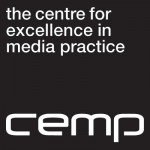 Reminder about this Thursday’s meeting which is an open invitation for people to come along, have a coffee and tell us how we can support collaborative approaches to pedagogic research & innovation.
Reminder about this Thursday’s meeting which is an open invitation for people to come along, have a coffee and tell us how we can support collaborative approaches to pedagogic research & innovation.
The background:
This academic year CEMP will continue to publish a fortnightly research & innovation funding bulletin via this blog, like so: CEMP bulletin 26.9.13
The Research & Innovation meetings will also continue, but we want to invite colleagues from the rest of the Media School and across BU to tell us how we can increase engagement and collaboration in all aspects of pedagogic / educational research and innovation related to media / technology.
Previously, the model has been like this –
The bulletin is posted on a Thursday – this contains information about funding calls and also monitors live projects and reports on the outcomes of all bids.
The next Thursday, we meet to discuss the calls in the bulletin and report on bids in progress.
The next Thursday, the updated bulletin is posted
….and so on.
So far, we’ve been successful in one of our two key objectives – increasing CEMP bidding activity, but less successful in the other – developing collaboration with other people in BU, either in response to the funding calls in the bulletin or to try to match peoples’ ideas for projects / innovation to funding opportunities. This second objective is a service / function CEMP can offer to the University, and we’d like more colleagues to access this.
So – we’d like to review how we do this, in order to get better at the second objective, and to this end the first R&I meeting of this year is an open forum and everyone is invited to either come along and contribute to the discussion or to add a comment to this post if you have ideas but can’t make the meeting.
Meeting details:
Thursday 26th September 10-12
CEMP’s new office (CAGO2) – with tea, coffee and pastries!!!
Key issues for discussion:
- How can CEMP support people in developing research / innovation projects?
- What are the structural obstacles and how can we overcome them?
When we’ve got everyone’s ideas / requests for how to proceed, we’ll decide how to go ahead.
I hope we’ll see you there or read your ideas on the blog.
Julian
An Appetite for Research in the Undergraduate Population
For the past four years we have run Research Assistantship Schemes in the Psychology Research Centre. These schemes, both voluntary and paid (fusion-funded), have lead to both expected and unexpected benefits. Read on to find out more.
The 2nd year Psychology undergraduate voluntary Research Assistantship Scheme received 45 applications this year which represented 25% of the eligible year group. This represents an almost 50% increase on the year before. Prior to formalising the scheme numbers were much lower than that. Formalising the scheme has helped reveal an amazing appetite for research in the undergraduate population, but our schemes have had further reaching benefits. One benefit has been that our accrediting body, The British Psychological Society, has commended the RA scheme. We have also learned that some students applied to our undergraduate course because of the RA scheme.
The related Fusion-funded Research Assistantship Summer Scheme received 37 applications for the 7 paid positions. Two of the positions were advertised to completed 3rd year students. Advertised as prestigious positions and a potential platform to MSc level study, all of the 3rd year applicants went on to apply for our research MSc in Lifespan Neuropsychology. This year the number of BU students recruited to the MSc has doubled (acting as somewhat of a buffer against the sector-typical drop in external applications). Furthermore, 66% of the unsuccessful applicants volunteered as RAs with us over the summer instead of missing out. Some of these applicants joined our RA schemes in their second years as volunteers meaning that we have provided them with a pathway for research training from early in their degree through to MSc; for some this has lead to their names’ inclusion on submitted papers.
For the first time this year the summer scheme positions sought sponsorship. Non-financial sponsorship came from three local charities alongside which the RAs worked giving them further invaluable experience. At least one of these is now considering providing financial sponsorship for summer 2014; we hope to introduce matched- or fully-funded sponsorship options in the near future. In sum, the RA positions are a useful route route to engagement with local, external bodies and could entice first-time funders, representing first-step funding, and potentially leading to funding for matched- or perhaps fully-funded PhD positions and beyond.
The RA schemes have been running in the Psychology Research Centre for four years. Increasing formalisation has led some important benefits for students and staff and revealed an appetite for for research in the undergraduate population that previously could only have been guessed at. For sure, some of this represents the desire for more general experience for CVs but most are genuinely interested in the outcome of the research. Students learn the difficulties involved in research and begin to better understand and appreciate what academics spend their time doing when they are not teaching. Staff are learning more about the utility of involving fresh, eager minds in their research. If wielded properly, RA schemes have the potential to meet student demands, increase MSc level study here at BU and as a consequence prevent the loss of our best students, and help build future researchers. We are happy to report all of these outcomes in the four years the schemes have been running. We aim to continue the formalisation and offer Certificates for newly defined stages of Research Assistantship, which involves combining our up until now separate voluntary and paid schemes. We have spoken to at least one head of group who is interested in porting this formalised scheme to their discipline and to allowing our RAs to interact in the hope of fermenting interdisciplinary discussion and research and the undergraduate level. We hope that this blog entry will spark more interest.
Science for the community events at the Thomas Hardye School! – Does this inspire you to think about what Public Engagement activities you could do?
Community Lecture Events:
The Thomas Hardye School is pleased to announce that they have secured some fantastic and extraordinary guest speakers for the academic year 2013-2014, including; past TV weather forecaster Michael Fish and presenter of many TV programmes focusing on geological sciences, Iain Stewart.
The community lectures take place in the Thomas Hardye Lecture theatre at 7:00pm. Admission is free and tickets are available to collect from the school from 8.45am on the release date (release date is normally 2 weeks before each lecture). Please note that there is a maximum of 4 tickets per person and that tickets go very quickly and are given out on a first come, first served basis.
Thomas Hardye School Community Lectures Programme.
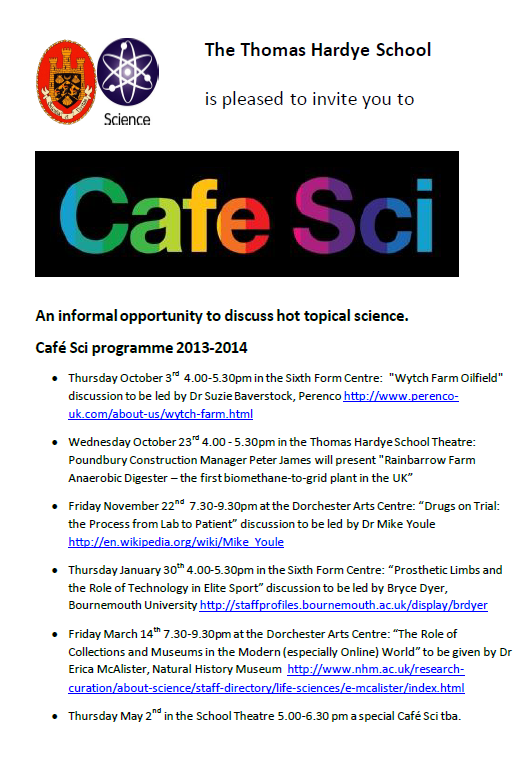
Science Family Fun Afternoon – Saturday 12 October 1:00-5:00pm
On the afternoon of Saturday 12th October, the Thomas Hardye School science department are running a hands-on family fun day event which will celebrate the life and work of Alfred Russel Wallace, who was the co-developer of the theory of evolution by natural selection. On the day, scientists from different external organisations, including; the Dorset County Museum and the Wildlife Trust will be presenting a range of displays, competitions and interactive activities. The event is suitable for those of all ages, entry is free and there will be light refreshments available!
Wallace 100 – 12th October pdf
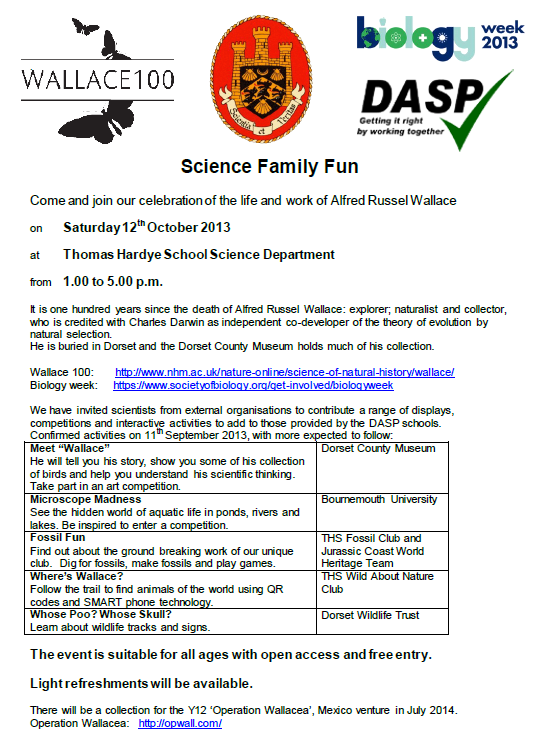
Cafe Sci
The Thomas Hardye School also participate in ‘Cafe Scientifique’, which is a series of informal events where people come to discuss hot topics in science with different experts from the scientific world.
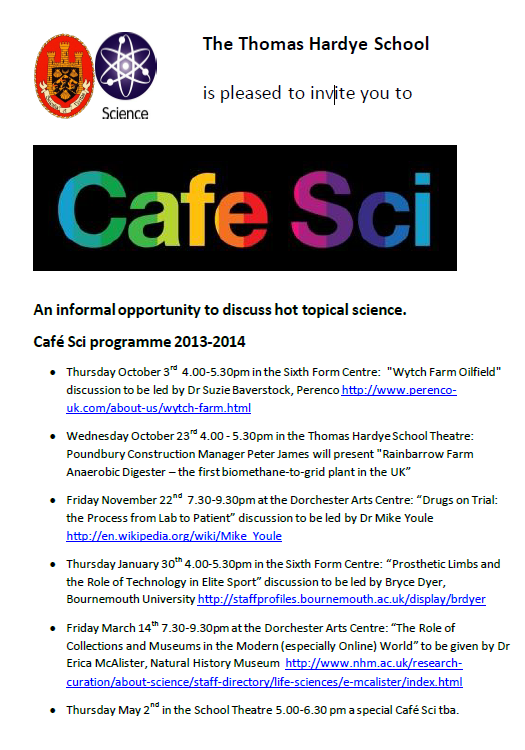
By taking a look at some of the events that The Thomas Hardye School are hosting, perhaps this could inspire you on what public engagement you could do?
Interdisciplinary Seminars on Cyber Security
I am delighted to announce that we will shortly be launching a new interdisciplinary seminar series on Cyber Security. Our invited speakers will give interesting, thought-provoking talks on a variety of topics related to security and privacy. Although some of these speakers will be academic, their talks will be approachable and require nothing more than a general interest in security, and an enquiring mind.
The seminars will take place at the Executive Business Centre on Tuesdays from around 5pm and will last for approximately an hour. The seminar series will also be an opportunity for like-minded folk to come together and build connections to start tackling the issues discussed. Therefore, after each seminar, we will convene at a nearby pub for more networking and discussion.
We will announce details of our first seminars soon. In the meantime, please get in touch if you have suggestions for possible seminar speakers and topics.
Find out more about the Technology and Design research theme
 Renewable Technology cross-School events were held during last academic year (January 2013 and Feb 2013), these were well attended. Presentations were led by academics and Local Government Representatives including from Poole Borough Council. Additional meetings took place in the area of medical engineering in collaboration with local Health Trusts with excellent attendance cross school and the medical professions. Internal cross school meetings were also organised in the area of creative design and design business. During BU’s Festival of Learning a number of public engagement events were held in June 2013. These events provided a networking opportunity for public engagement, local/regional businesses, government, community and local council representatives, academics and researchers. This included a “question time” activity, one day course in sustainable design and “let’s take pride in design and engineering” In addition the theme exhibited with cross-school academics at the GovToday Carbon Reduction 2012 event in November 2012 at London and delivered a master class. Attendees included representatives from relevant government departments, agencies and other public sector organisations.
Renewable Technology cross-School events were held during last academic year (January 2013 and Feb 2013), these were well attended. Presentations were led by academics and Local Government Representatives including from Poole Borough Council. Additional meetings took place in the area of medical engineering in collaboration with local Health Trusts with excellent attendance cross school and the medical professions. Internal cross school meetings were also organised in the area of creative design and design business. During BU’s Festival of Learning a number of public engagement events were held in June 2013. These events provided a networking opportunity for public engagement, local/regional businesses, government, community and local council representatives, academics and researchers. This included a “question time” activity, one day course in sustainable design and “let’s take pride in design and engineering” In addition the theme exhibited with cross-school academics at the GovToday Carbon Reduction 2012 event in November 2012 at London and delivered a master class. Attendees included representatives from relevant government departments, agencies and other public sector organisations.
Future plans include international networking and extending our public engagement activities at the next BU Festival in 2014. In addition we will develop initiatives around the computing/engineering interface. This will include autonomous systems, robotics and intelligent manufacturing.
Sign up to the Technology and Design BU Research Themes here:
Bangkok conference plans progressing well
He has just returned from meeting his co-organisers Assoc Prof Jirayudh Sinthuphan and Assoc Prof Saravudh Anantachart of Chulalongkorn University.
The conference, organised in collaboration by Chula’s Faculty of Communication Arts and BU’s Media School, has attracted interest from across Asia and the Middle East. BU’s involvement is supported by FIF.
The international review panel has chosen 30 abstracts from ten countries with a broad range of topics and approaches.
“At our meeting in Bangkok, the conference schedule was finalised and other arrangements confirmed. The facilities at Chula are very good and enable us to run parallel streams of papers on both days”, said Prof Watson. “We are really pleased with the response which is far more positive than expected. Already almost all speakers are confirmed to attend and registered.”
The audience will also include Thai and regional academics and representatives of the national advertising, marketing communications and public relations sectors. The conference schedule will be published shortly on the conference website: http://cuprimcconference.net/
Academic writing workshop in Bangkok
As part of his visit to Chulalongkorn University in Bangkok to plan the FIF-supported conference that will be held in November, Prof Tom Watson of the Media School delivered a well-attended workshop on Academic Writing.
Four leading universities – Chulalongkorn, Assumption, Mahidol and NIDA – sent over 40 academic staff and doctoral students to the workshop held in the host’s Faculty of Communication Arts building on September 3.
“There is a strong push to develop research and publication outputs in Thailand, so the workshop was well-timed to catch that wave,” said Prof Watson. “Our colleagues at Chulalongkorn did a first-rate job in organising and promoting the event.
“The workshop was also excellent public diplomacy by BU to support so many academics in such a targeted manner. It helps build our reputation in Thailand which is sending more Masters and doctoral students to the UK. Previously Australia and the USA were the main destinations.”
The workshop also gave an opportunity to experience one of the venues to be used by the 1st International Corporate and Marketing Communication in Asia Conference on November 18-19.
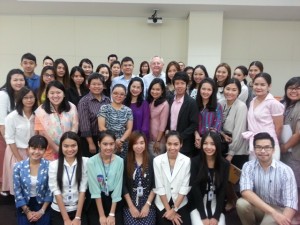
Being Creative?
Some would say, me included, that BU has until recently been rather insular and not very well embedded within its region. We have often viewed with suspicion requests to collaborate and seen our region simply as a source of enterprise income rather than a source of fruitful collaboration. During the last year we have spent a huge amount of time and effort in changing this and embracing the true concept of knowledge exchange as a real, meaningful and two-way exchange of information. As a result our influence within the region is growing and we are seen by many key stakeholders as crucial to generating regional economic growth, something which is a mirror of current government policy. As a Member of the Local Enterprise Partnership (LEP), where I represent both our region’s Universities, I have used my position to promote a more open and accessible HE sector willing to engage and invest in our region’s growth. The LEP is currently working on its Local Growth Strategy, along with a regional Skills Plan and a strategy to underpin its future management of EU Structural Investment Funds (EUSIF). Graduate retention and the creation of high skills jobs are keys to continued economic growth within Dorset. BU believes that the Creative and Digital, along with the Health and Social Care sectors are crucial to achieving this and we are actively promoting these areas along with more traditional ones like advanced manufacturing and big data.
By way of illustration, in June this year we helped to orchestrate the signing of a regional Manifesto for the Creative and Digital Economy which brought together private and public bodies, as well as the regions’ politicians, in a commitment to support and grow the creative and digital sector. The long-term vision is to establish Dorset as an international hub for creative and digital businesses.
A key outcome from the manifesto was the creation of a working group tasked with turning the manifesto’s vision into a reality. The working group, chaired by David Ford, Chief Executive of Bright Blue Day, is made up of senior representatives from business, the public sector and education. BU is wholly committed to driving delivery of the manifesto’s vision and we have made a number of commitments (both financial and in-kind) to support the work. One of these was a commitment of staff time from BU and Samantha Leahy-Harland from OVC is spending half her working week supporting David Ford on taking forward the manifesto. Currently the team are finalising the brand for the initiative which I hopefully will be able to share very soon. Another commitment made by BU and Bournemouth Borough Council was to support Matt Desmier, a creative consultant, in the creation of Think Create Do, an online portal to support the creative and digital media economy locally. Think Create Do will include a jobs board with opportunities for students, a news feed, events diary and a directory of local businesses. The site goes live in the autumn and I’ll post with more details in due course. Matt Desmier is of course also behind the annual Silicon Beach Conference [http://www.siliconbeach.eu/index.html], now in its third year, and of which BU is proud to again be a sponsor. Longer term we hope to support the creation of Dorset’s own creative and digital village. I will keep you posted and would be happy to discuss our regional agenda with groups of interested staff over the next few months.
On My To Do List
Do you have an ever growing list of things that you need to do? Do you keep it written down or like me swirling in your head? In truth, I have in recent years had to resort to using a list of actions that sits alongside my email and have various jotted notes as well. Anyway my point is?
My point is that sitting at the top of my ‘to do’ list this week is to complete the mandatory ethics module for all researchers at BU [Research Ethics]. The clock is ticking and this needs to be completed by the end of September by all academic staff. This includes all BU employees who supervise students on dissertations/thesis, part-time hourly lecturers who supervise students, academic staff who are not research active and demonstrators/technical staff who assist with dissertation supervision; everyone in fact! It is also mandatory for all new starters and PGR students. So why, I hear you ask?
We all face ethical questions within our research, even those like me that like to work on inanimate rocks! Should one collect a rock sample, pocket that fossil and what are the implications of doing so? Ethics impacts on all research and understanding the basic issues and when formal approval is needed and when it is not, is vital for all researchers. Our Ethics Policy and procedures are still relatively new which reflects our institutional history and the fact that we don’t have a large medical faculty. However, most of our research does involve people and ethics can’t be ignored. A year ago we tightened up our procedures around ethics, introducing the online ethics checklist, and are currently revising our ethics codes with the intention of making further changes to procedures this autumn. This reflects a growing institutional maturity and also, disturbingly for me, a growing body of case law.
Raising institutional awareness of ethics is therefore both timely and, in my experience over this last year, much needed. Completing the course ‘Ethics 1: Good Research Practice’ and passing the online test is mandatory for all staff including myself! There is also a second module ‘Ethics 2: Working with Human Subjects’ that is recommended for those working with human participants (directly or indirectly) in research projects. You gain access to the modules by logging in to myBU and clicking on ‘Research Ethics’ under the ‘My Communities’ tab.
I would encourage you all to complete the module, since the draconian bit – yes sorry – is that staff who don’t complete the training will be excluded from applying for BU funding (e.g., Fusion Investment Funding and BU Studentships) and participating on BU development schemes. So I had better stop writing and get on with doing the module!
Double Dutch?
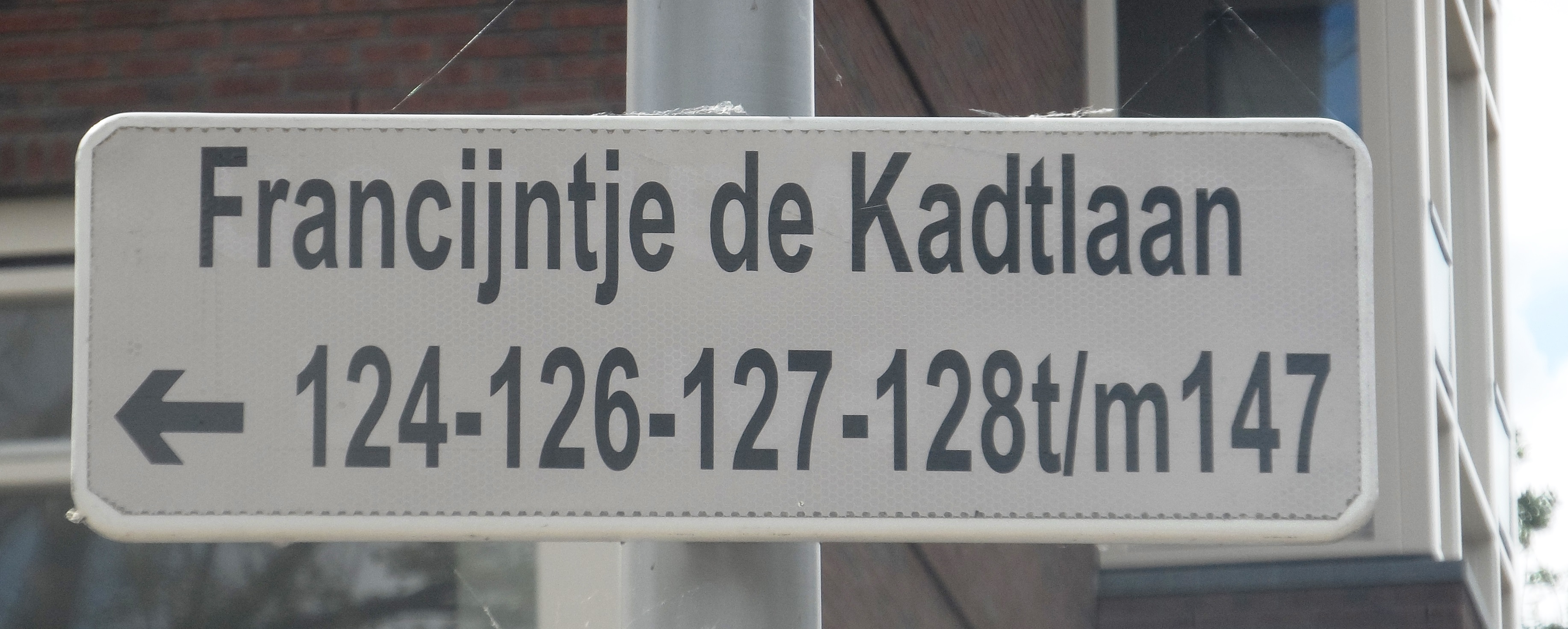 Prof. Edwin van Teijlingen published a short article in an online newspaper in the Netherlands De Vlaardinger. This online paper is based in the town where Prof. van Teijlingen was born and where he lived all is life before moving to the UK in 1984. He wrote this article whilst on holiday visiting his parents and other family members.
Prof. Edwin van Teijlingen published a short article in an online newspaper in the Netherlands De Vlaardinger. This online paper is based in the town where Prof. van Teijlingen was born and where he lived all is life before moving to the UK in 1984. He wrote this article whilst on holiday visiting his parents and other family members.
The article, in Dutch, highlights the importance of the live and works of Ms. Francijntje de Kadt, the first chair of the KNOV (=Royal Dutch Organisation of Midwives). Ms. Francijntje de Kadt was trained at the School of Midwifery in Amsterdam. She was town midwife for the poor in Vlaardingen, where she worked most of her career. De Kadt helped establish the first Dutch midwifery organisation in 1898 and became its first chair.
Three years ago Prof. van Teijlingen suggested to the town council of Vlaardingen that it should name a street after her, a proposal which was accepted immediately. Building started some time ago and earlier this year the people moved into the Francijntje de Kadtlaan.
The article (published 21 August 2013) can be found at: http://www.devlaardinger.nl/Voorpagina/Nieuws/tabid/3329/ArticleID/5622/mod/5245/Francijntje-de-Kadtlaan-in-Vlaardingen.aspx
Edwin van Teijlingen
BU researcher in most-cited lists of world’s top two journalism journals
Media School scholar, Dr An Nguyen, has been featured among the most-cited authors in both of the world’s top journals in journalism studies, according to the latest data from Google Scholar Metrics.
Dr Nguyen has two sole-authored articles — both on the diffusion and impact of of online news — that are among the most cited papers of Journalism Studies and Journalism, the only two journalism journals in Google Scholar’s top 20 communication journals.
Google Scholar Metrics, which aims to help scholars to assess the visibility of journals and to consider where to publish, ranks journals according to their recent citations. The 2013 data were based on citations during the five full years between 2008 and 2012.
They cover eight broad areas of research: Business, Economics & Management; Chemical & Material Sciences, Engineering & Computing Science; Health & Medical Sciences; Humanities, Literature and Arts; Life Sciences and Earth Sciences; Physics & Mathematics; and Social Sciences. Each broad area is divided into a good number of sub-categories, each featured with its top 20 journals.
Journalism Studies and Journalism ranks 6th and 16th in the sub-category of Communication Studies. The former also stands at 12th in the broad field of Humanities, Literature & Arts.
An Nguyen joined BU in 2011 from the University of Sussex, where he headed its journalism programmes. His main research interests include online journalism, news audiences and citizenship, science journalism, and the globalisation of news.
For further information on Google Scholar Metrics, visit http://scholar.google.com/intl/en/scholar/metrics.html.
HSC student wins Santander Travel Grant to go to Yale
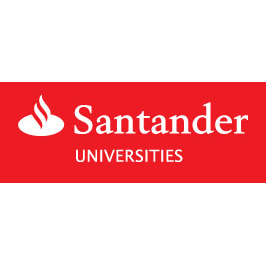 Mrs. Anita Immanuel has just been awarded a travel award from Santander to visit the Yale Cancer Centre in the USA. Anita studies the quality of lives of adults in Dorset who have survived cancer of the blood or immune system. Cancer is a devastating disease and with the advances in treatment patients are living longer, however left with debilitating side effects which can negatively affect their quality of life.
Mrs. Anita Immanuel has just been awarded a travel award from Santander to visit the Yale Cancer Centre in the USA. Anita studies the quality of lives of adults in Dorset who have survived cancer of the blood or immune system. Cancer is a devastating disease and with the advances in treatment patients are living longer, however left with debilitating side effects which can negatively affect their quality of life.
Anita’s research will identify any unmet needs in this group of patients and will give a better understanding into comprehensive survivorship care thereby maximising quality of life. This study uses a mixed methods approach in examining the quality of lives of these patients who have been treated for a haematological cancer. Data will be collected across three Dorset hospitals: The Royal Bournemouth Hospital, Poole Hospital and Dorset County Hospital.
Dr. Helen McCarthy, Consultant Haematologist at The Royal Bournemouth Hospital and Anita’s clinical supervisor, highlighted: “At Yale Cancer Centre Survivorship Clinic, Anita will be introduced to their comprehensive survivorship care programme which can help improve the quality of lives of adults treated with cancer in Dorset.
Dr. Jane Hunt, the lead supervisor and senior lecturer at Bournemouth University’s School of Health & Social Care added: “The survivorship programme at the Yale Cancer Centre Survivorship Clinic integrates a multidisciplinary approach for following up patients treated for cancer by leading experts, which differs significantly from our own. I am convinced Anita’s PhD study will benefit from collaborating with the Yale experts.
BU Prof. Edwin van Teijlingen, Anita’s third supervisor, commented “We are grateful to Santander for this funding. We know Anita’s research will significantly contribute to the underdeveloped area of research on adult haematological cancer survivors”.
For more about Santander Awards see: http://microsites.bournemouth.ac.uk/graduate-school/pgt-santander-mobility-awards/
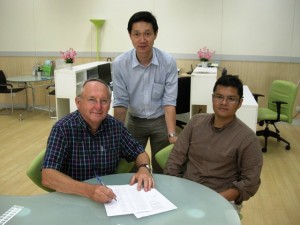
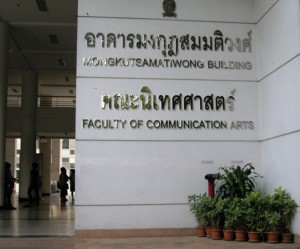











 Postgraduate Research Experience Survey (PRES) 2024 – Closing today
Postgraduate Research Experience Survey (PRES) 2024 – Closing today THE INNOVATION COMMON ROOM: Going Old School
THE INNOVATION COMMON ROOM: Going Old School Cybersecurity Learning through Game-Based Mechanisms
Cybersecurity Learning through Game-Based Mechanisms Nepal Study Days 2024
Nepal Study Days 2024 We can help promote your public engagement event or activity
We can help promote your public engagement event or activity Funded Public Engagement Opportunity – ESRC Festival of Social Science 2024 -Deadline for Applications Thursday 16 May
Funded Public Engagement Opportunity – ESRC Festival of Social Science 2024 -Deadline for Applications Thursday 16 May MSCA Postdoctoral Fellowships 2024
MSCA Postdoctoral Fellowships 2024 Horizon Europe News – December 2023
Horizon Europe News – December 2023